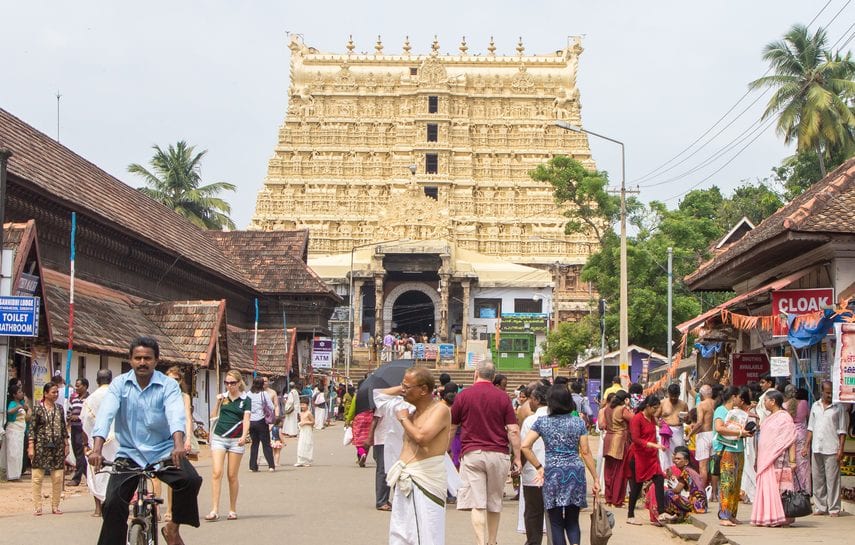
Must do audit in three months: SC tells Kerala's most famous temple
The Thiruvananthapuram-based Shree Padmanabha Swamy Temple Trust’s plea seeking exemption from an audit was rejected by a three-member bench of the Supreme Court (SC) on Wednesday (September 22). The Trust will now have to face an audit of its income and expenses for the past 25 years.

The Thiruvananthapuram-based Shree Padmanabha Swamy Temple Trust’s plea seeking exemption from an audit was rejected by a three-member bench of the Supreme Court (SC) on Wednesday (September 22). The Trust will now have to face an audit of its income and expenses for the past 25 years.
A three-member bench of Justice UU Lalit, Justice SR Bhat and Justice Bela M Trivedi said that the special audit involves the finances of both the temple and the Trust. ”It is clear the audit was not intended to be confined to the temple only but also the Trust,” said Justice Lalit, reading out the operative portion of the order today in open court, said a Live Law report.
Moreover, since the Administrative committee of the temple had submitted a report that Kerala’s most famous temple was going through an “unprecedented financial crisis” and is unable to meet its monthly expenses, the bench ordered that the audit be completed within three months, added media reports.
The Padmanabha Swamy Temple Trust, constituted by the former Travancore royal family, had moved the court seeking exemption from an audit ordered by the top court last year.
The senior lawyer for the Trust, Arvind Datar had argued that the Trust had been constituted (on earlier orders by the court) only “to oversee the pujas and rituals of the temple involving the family, with no role in the administration”, said an NDTV report.
It is a distinct separate entity from the temple and it had only come into the picture after the amicus curiae had told the court that their accounts should also be audited, said the lawyer.
Also read: COVID impact: Padmanabhaswamy Temple seeks more time to pay state dues
Senior advocate R Basant representing the temple’s administrative committee (headed by a district judge), however, pointed out that the iconic religious structure is under great financial stress – with donations and on-site collections below normal levels because of COVID, said media reports.
LiveLaw reported that Basant said that the Trust was constituted by the then ruler to meet the day to day expenses of the temple. ”It was found by the amicus that the Trust was not discharging the duties. The properties of the temple is also with the Trust. The amicus definitely said – audit the accounts of the temple and the Trust,” he said adding that the Trust was trying to “evade” its responsibilities.
The court had been told the temple’s income had reduced to ₹56 lakhs since it has remained closed for a year due to COVID. However, it requires ₹ 1.25 crore to pay salaries and meet other expenditures to conduct rituals and poojas.
The crisis had been averted by cashing fixed deposits and drawing from savings bank accounts but the savings would be completed depleted after the next month’s salaries, gratuity and other dues were paid and therefore they needed financial contributions from the Trust.
The administrative committee also claimed the Trust had ₹ 2.8 crore in cash and assets worth nearly ₹ 1.9 crore. “The entire thing has to be gone into… how much of the temple money is with the Trust?”
Also read: Padmanabhaswamy Temple and the royal family: How the case unfolded
The Trust’s advocates then clarified that the objection was less to the audit than the trust itself should not be placed under the administrative committee.
In 2020, the apex court gave the administration of the temple to a committee from the former Travancore royal family and sought an audit of the temple’s income and expenses for 25 years. The firm so engaged had asked the Trust to submit its income and expenditure records.
The Trust then approached the court to counter this request.
Earlier in 2020, the former ruler of Travancore challenged a Kerala High Court judgment that said the family had no rights over the temple.
The Supreme Court recognised ‘shebait’ rights, or rights of individuals who serve the deity, but handed administration to the committee headed by a Thiruvananthapuram district judge.

